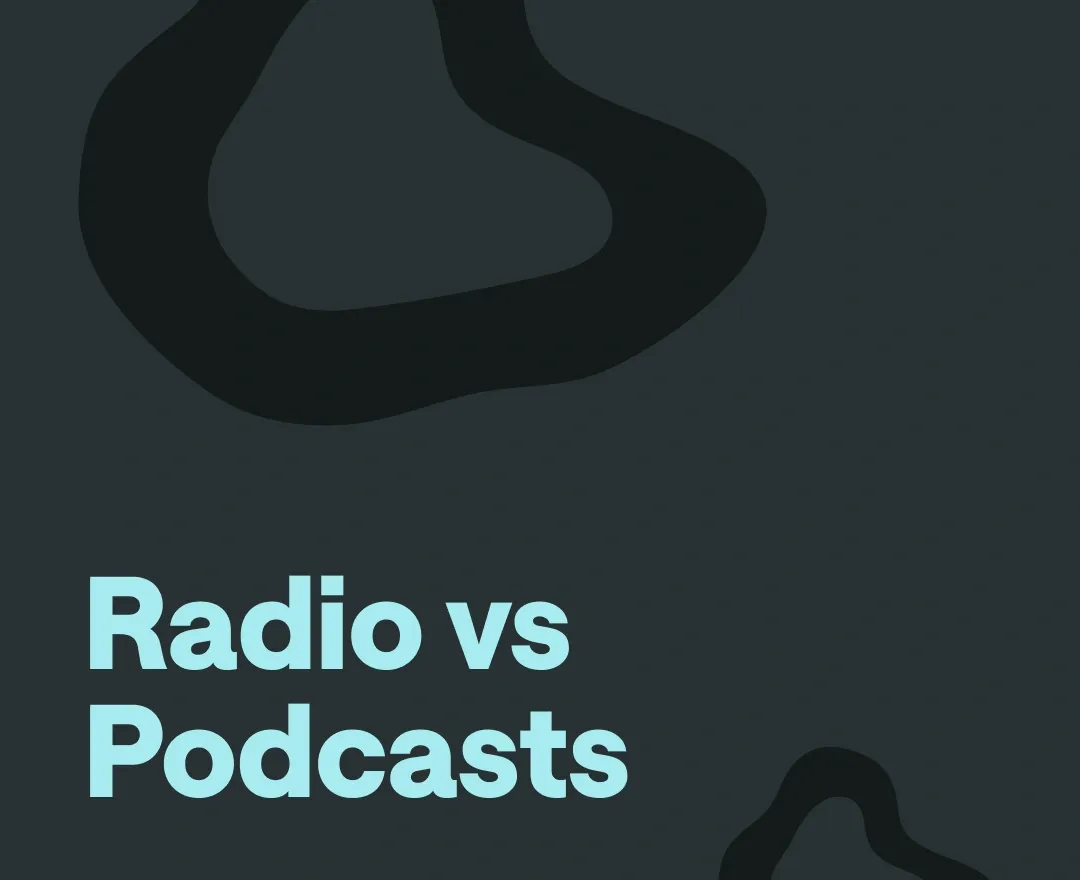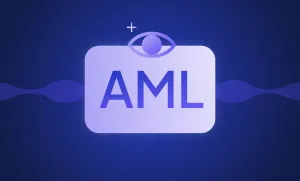There is a blurred line between podcast and radio. Both are audio content with similar styles and more or less the same genre. So, it's only natural that audio content creators can sometimes get stuck when choosing which platform to use.
Are you also struggling to answer this question for yourself? We are here to help!
Actually, we can't tell you which medium is the best for you. However, we have collected the main differences between radio vs. podcast to help you make up your mind. Before we jump into the comparisons, let's quickly define the two mediums.
What is a radio?
Radio is a live audio show. It's broadcasted with an airwave, and listeners can listen to the radio only while it's live.
What is a podcast?
Podcasts are pre-recorded online shows, and they are available to listeners as long as the podcast owner does not remove their show from podcast directories.
What is the difference between radio and podcasts?
Here are some of the key differences between podcasts and radio content.
1) Radio content follows a strict schedule
Radios impose a timetable on their listeners. If one wants to listen to a specific radio show, one must stick to the radio's agenda and broadcasting hours to avoid missing out on anything. As a result, if a person is busy while the radio show is being broadcasted, you lose a potential listener. Podcasts, on the other hand, are pre-recorded and accessible to listeners at any time. They can download the episode and stream it later on their computers or mobile devices anytime. It would probably be easier for you to record a podcast rather than do a live show as a host. You should be very careful not to make a mistake during the latter because there is no chance of editing what you have just said. The life of podcasters is way easier in this regard. They have a pre-written script and can record the same episode as many times as they want until they get a show ready to go live. Therefore, even if you say something wrong during a podcast, you can always use editing software to fix it.
2) Radio targets a more general audience
That's another critical difference between radio vs. podcast. The two shows target different audiences with differing listening habits and interests; therefore, even with a naked eye, you can identify the difference in the content. Radios are broadcast for everyone; therefore, their topics should be more general. Radio stations are divided into categories such as music, news, politics, etc. However, even those specified radio channels can't afford content for an audience that's too narrow. Radios usually pick what's trending and talk about it, making the general public relate to the show's content. Podcasts, on the other end, don't have to be bound to newsworthy topics. Podcasters choose their topics based on the interests of their niche audience. A podcast can often be dedicated to narrow topics like dog care or wooden crafts.
3) Podcasts have greater freedom for content
Radio typically regulated by a specific public body that determines standards for content and advertising to protect listeners. Radio broadcasts are also restricted in time. Radio shows have a consistent schedule, and the shows are usually limited to a predefined length. It's highly unlikely that you'll come across a radio show that lasts for more than an hour.
To sum up, radio broadcasting has strict limits that do not leave much creative freedom to the hosts, as they have to follow the editorial calendar most of the time. Podcasters are free to do anything as long as their audience enjoys it. If a podcast includes somewhat explicit content, but users are notified about that in advance, there are no issues.
By "notifying listeners," we mean putting a short warning in the podcast introduction or podcast description so that listeners know what they are going to listen to. Podcasters are also unlimited in length. You'll come across shows that last for several hours as well as 15-minutes long microcast, and both are perfectly working formats.








